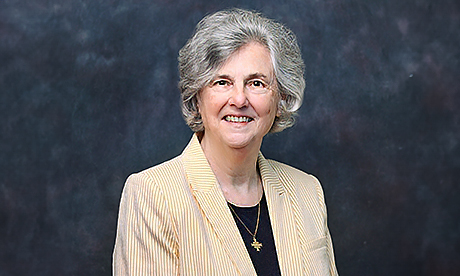Catholic bullying is spreading.
In the latest example of a bully is Minnesota Bishop Robert Barron’s Word on Fire organisation threatened Commonweal magazine and theologian Massimo Faggioli over Faggioli’s April 22 essay, “Will Trumpism Spare Catholicism?”
The commotion is too weird to behold.
Sticks and stones
It began like all schoolyard fights.
Barron, or someone who works for him, thought Faggioli, who teaches at Villanova University, called the bishop a name.
In best fourth-grade fashion, an unsigned “cease and desist” email went to Faggioli and to Commonweal editor Dominic Preziosi.
Apparently without a lawyer or even a dictionary nearby, the email claimed Commonweal and Faggioli were guilty of “slander,”.
That name is usually applied to spoken defamatory statements, instead of published ones, which are libel.
Faggioli’s opinion piece examined the influence of conservative, anti-Francis bishops.
He described them as the ones whose political alliances mix “ahistorical, magisterial fundamentalism in militant Catholicism with nationalistic impulses masquerading as concern for the ‘forgotten’ common American.”
He apparently included Barron in what he called the “’Trump-Strickland’ axis,”.
He was referring to former Texas Bishop Joseph E. Strickland, a named supporter of the pro-Trump “Catholics for Catholics” organisation.
That organisation counts among its supporters former Trump advisers Michael Flynn and Steve Bannon.
Barron’s company complained about his inclusion, and Commonweal indulged him, writing in an editor’s note:
“With the author’s permission, the editors have removed a paragraph that originally appeared here because Bishop Robert Barron’s media ministry, Word on Fire, informed us that they consider it slander for them to be in any way associated with Donald Trump or Trumpism.”
Unwilling to take yes for an answer, Barron’s folks sent another unsigned email, this time to the entire Commonweal staff.
It said that the retraction notice was “clearly malicious” and that the email was “a formal notice to preserve all records in anticipation of litigation.”
Strange and bullying
To be clear, no Catholic, let alone a bishop, should want to be connected to Trump, whose ongoing legal entanglements and documented disrespect for women and migrants are outside the pale.
That Trump benefited from a strange Catholics for Catholics fundraiser at Mar-a-Lago is enough to warn anyone.
It was there a man identified as Father Dennis led what he called “the meal prayer” and former Trump national security adviser Flynn said they would “do the rosary,”.
But bullying a 100-year-old liberal Catholic opinion journal emphasises the conservative bent of Barron’s enterprises.
It smacks of the sort of “conservatism” Pope Francis recently called “suicidal” on CBS’ “60 Minutes.”
The “suicidal conservatism” Francis worries about stifles growth and, he said, leaves people “closed inside a dogmatic box.”
Those U.S. bishops who cannot think out of the box — and there are many — daily damage the beliefs of Catholics who think Catholic social teaching is a good thing and who wish for less clericalism and more transparency in church matters.
To to start with, where, exactly, does the money go?
The ubiquitous Catholic bully
Bully clerics abound at every level, in the United States and around the world. And bullying Catholic lay initiatives is not new.
In the 19th century, Mother Cabrini, the champion of immigrants, had her problems with Archbishop Michael Corrigan, who wanted her out of New York.
In the 20th century, another archbishop of New York might have wished the same for Dorothy Day.
Now, in the 21st century, a group of lay Catholics suffers a legal threat come some 1,300 miles from Minnesota to a small office suite on New York’s Upper West Side.
It may be a good thing that Barron wants to distance himself from Trumpism, because many of his followers may still think Trump is OK.
But bullying is not the way to do it.
- First published in Religion News Service
- Phyllis Zagano PhD is a Senior Research Associate in Residence at Hofstra University. She has written and spoken on the role of women in the Roman Catholic Church and is an advocate for the ordination of women as deacons. Phyllis is also an author at Religion News Service
News category: Analysis and Comment.




